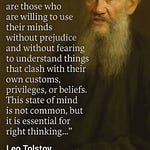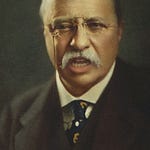The quote, “People will come to love their oppression, to adore the technologies that undo their capacities to think.”, is often attributed to Aldous Huxley, author of the dystopian classic Brave New World. Though not recorded verbatim in any of his texts, it encapsulates the central warning he expressed repeatedly, most explicitly in his 1958 work Brave New World Revisited.
In that book, Huxley confronts the unsettling reality that societies of the future, including his own, may not descend into tyranny by force, as Orwell feared, but rather drift into it voluntarily through pleasure, distraction, and convenience. He foresaw a population so immersed in its own gratification that it would fail to notice the steady erosion of its ability to think critically and act independently.
The Comfort Trap: From Dystopia to Daily Life
What makes this warning chilling is how prescient it has become. We live in an age where surveillance is not enforced through the threat of punishment, but willingly opted into via terms of service. Where propaganda no longer needs to silence opposition, because algorithms drown dissent in noise and novelty. Where censorship is not imposed by decree, but through self-sorting echo chambers that algorithmically feed us what we already believe.
This, Huxley believed, was the true danger: not the overt tyrant, but the soft despotism of comfort.
Unlike Orwell’s 1984, where the state maintains power by suppressing knowledge and enforcing fear, Huxley’s society sedates itself. In Brave New World, a drug called “soma” keeps the masses pacified. Sex is casual and meaningless. Books are replaced with screens. Thinking is discouraged because it disrupts the artificial harmony engineered by those in control.
Today, that soma takes the form of the infinite scroll. The comfort of predictive algorithms. The dopamine hit of social validation. Technologies that promised to liberate our time now colonize our attention. Devices that once served us have become environments we inhabit, shaping how we think, feel, and even who we believe we are.
When Choice Is Illusion
To love one’s oppression is to be blind to it, or worse, to mistake it for liberation. This is the heart of Huxley’s fear. That the very mechanisms designed to offer more freedom, more choice, more access, more connection, could be turned into tools of quiet domination, precisely because they are chosen.
But this is not a tale of total defeat. Huxley’s insight was not just a warning, it was a call to vigilance. The antidote to unthinking acceptance is not panic, but awareness. Not fear, but literacy. Not resistance through noise, but through depth.
Reclaiming the Mind
So what can be done?
Guard Your Attention. In a world where your focus is monetized, attention becomes a political act. Choose where it goes. Curate what you let in. Treat your mind as sacred terrain.
Practice Reflection. Solitude and deep thought are revolutionary in a distracted world. Reclaim the inner life. Read. Journal. Resist the urge to fill every quiet moment with noise.
Ask Who Benefits. When you’re fed a belief, a trend, a headline, ask: Who gains if I stop questioning this? The key to freedom is not rejecting all authority, but discerning which forces shape your perspective without your consent.
Choose Depth Over Ease. Technology should be a tool, not a master. Seek out media that challenges you. Conversations that stretch you. Knowledge that complicates you.
A Final Warning
The erosion of liberty rarely announces itself with fanfare. It seeps in, through the benign update, the helpful assistant, the friendly feed. But when comfort becomes compulsion, when freedom of thought is outsourced to machine curation, when we forget how to be bored, quiet, or still, we begin to love our chains.
Aldous Huxley didn’t just predict a dystopia. He diagnosed a tendency in human nature: the seduction of ease over the burden of freedom. And he left us with a choice, not to fight the machine, necessarily, but to remain human within it.
Let us not adore the technologies that undo our capacities to think. Let us wield them with care, challenge them with intellect, and never forget that the most dangerous prison is the one we decorate ourselves.










